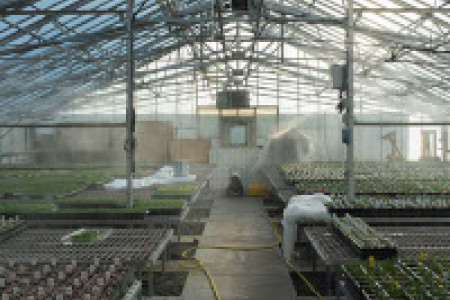Faspa brings slow food home
Menno takeout spot warms Winnipeg diners with new and familiar food
If the Mennonite world had a particular scent, faspa would be its signature fragrance.
Stepping into the aromatic warmth of Faspa on Portage Avenue evokes a true rural Manitoba experience of trekking to the neighbours’ on a wintry day, guided by the scent of baking bread, simmering borscht and savoury cured meats, wafting on the breeze.
“Growing up, faspa was the one meal that was served ‘come and go,’” Faspa chef and owner Josh Penner says, “not sitting around a table, but making a plate of food and mingling with family and friends.”
“Faspa” is a Low German word that has no direct English translation. It is a lunch traditionally served around 3:30 or 4 p.m., especially on Sundays. It comprises an array of bread, jams, meats, cheeses, borscht, pickled things and platz, a fruitfilled coffee cake. Faspa is traditionally served in a Mennonite home to anyone who stops by.
“Traditional faspa has little to do with the dinner table and much more to do with the people you are sharing it with,” Penner says. His storefront, which opened in mid-December 2023, offers only takeout and catering.
Penner is a Red Seal chef with more than 20 years of restaurant experience. His “slow-food” mentality – an approach to sustainable food-sourcing that has become a culinary buzzword in recent years – has been a Mennonite mainstay for centuries.
“Slow food is the opposite of fast food,” Penner says. It involves “making things from scratch, learning about your ingredients and giving them the proper time and care when cooking with them and (having) a philosophy of farm to kitchen to table.”
Among the menu items at Faspa are kielki (egg noodles) or vareniki (dumplings) in a savoury white sauce, farmer sausage, pork-broth borscht, guieso (traditional Paraguayan stew), platters of pickles, cheese and cured meats, rhubarb platz (coffee cake) and plumi moos (cold plum soup).
Plumi moos is “probably the most unique Mennonite dish and very polarizing amongst us Mennos,” Penner says.
“Either you love it or you hate it,” he says of the light, syrupy serving of soaked stone fruit and raisins. “I happen to love it, so I put it on the menu.”
Winnipeg houses the largest urban population of Mennonites in Canada. A venture like Faspa is well-positioned to bridge the gap between a local swath of contemporary Mennonites and the traditions of their grandparents, who sustained their families and community on scratch-cooking ingredients gleaned from the garden.
According to Penner, Mennonite millennials might’ve grown up with traditional food, gatherings and language but became disconnected from their culture over time. Through Faspa’s contemporary spin on Mennonite cuisine, he hopes to rekindle those culinary connections.
“Faspa’s food is meant to be familiar, but not exactly as your grossmama would have prepared it,” Penner says.
Find Faspa at 1316 Portage Ave. It’s open Monday to Saturday from 9 a.m. to 6 p.m.
Published in Volume 78, Number 15 of The Uniter (January 25, 2024)





